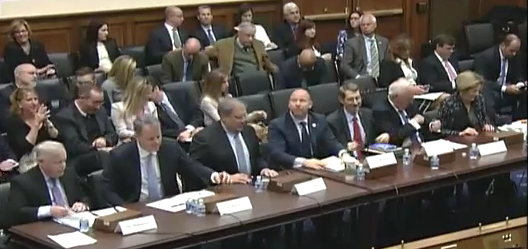
At a congressional hearing in Washington on Tuesday, advocates cited issues with unstable funding, aging infrastructure and inadequate staffing for critical air traffic control functions, and lobbied for fundamental change in how the FAA is managed and funded. Paul Rinaldi, president of the National Air Traffic Controllers Association, told the House aviation subcommittee that “the current funding situation is unacceptable, and we would like to explore alternative models that could address these problems.” Rep. Bill Shuster, R-Pa., who chairs the committee, agreed that change is needed. “We have spent $6billion on NextGen, but the airlines have seen few benefits,” he said. “We will never get there on the current path.”
The panel heard from experts with insights into alternative models that might work. Matthew Hampton, an assistant inspector general for aviation in the U.S. transportation department, reviewed how air traffic control systems have been set up in various ways in four other countries. Robert Poole, director of transportation policy for the Reason Foundation, said the air traffic organization should be separated from the FAA and organized as a separate nonprofit corporation funded directly by the users of the system. “After three decades of research on ATC reform, my conclusion is that the nonprofit corporation model with stakeholder governance is the best organizational form,” said Poole. Rep. John Mica, R-Fla., a member of the aviation subcommittee, said he plans to bring legislation before the House in April that would create a private corporation to govern the air traffic control system.
































